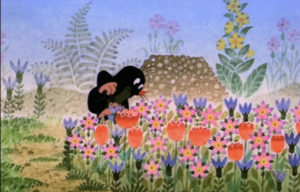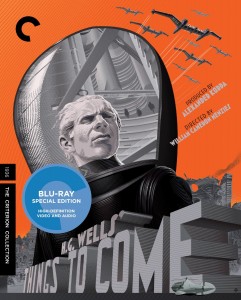Maybe Hyde Park on Hudson only really makes sense from a British point of view. It’s right there in the title – “Hyde Park on Hudson” reminds you that there’s another Hyde Park, “on Serpentine,” if you like, in London – and if you didn’t catch it from the title, Queen Elizabeth says it in the middle of the movie. “Why is it called Hyde Park? Hyde Park is in London. It’s confusing.”
The movie itself would be confusing if you don’t recall that Hyde Park in London, although technically crown property, is now overrun by the public and indeed home to radical speech and protest, and if you don’t concede that this description also applies pretty well to Hyde Park in New York, formerly a crown colony, and home to Franklin Roosevelt, then – in 1939 – seen as a radical tribune of the American people.
The two kindred parks yield two kindred stories.
In one, FDR’s distant cousin Daisy has an affair with him, believes she is unique, then discovers he has other lovers. One of them, FDR’s secretary Missy LeHand, tells Daisy that she will learn to share. And she does; in the end, happily.
In the other story, George VI (“Bertie”) and his queen, Elizabeth, come to the American Hyde Park to visit the President and court his support for Britain’s defense. It is the first visit by a British monarch to the United States, and a dark hour for Britain. But Bertie hits it off with FDR, feeling he has found a father figure in him, and declaring (in one of several bits of invention) that the two nations have forged a “special relationship.”
In case we miss the point, Daisy also says she has a “special relationship” with Franklin Roosevelt. Bertie’s special relationship with FDR is no more unique than Daisy’s. The movie ends on a high note, but we know that one day, soon, the British will learn they must share his promiscuous affections; by Bretton Woods and Yalta, FDR was courting Josef Stalin.
Perhaps, like Daisy’s bond with FDR, Britain’s tie to the US is not less special because America is so profligate with its affections.
Historians are supposed to quarrel with the film’s depiction of Roosevelt. I don’t think it’s necessary; the Roosevelt in the movie isn’t the human, historical FDR – he’s America personified – smiling, inscrutable, shameless, exploitive, powerful, popular. Bill Murray doesn’t do an impersonation – though he gets the smile right.
But there are essential things about Roosevelt the film does show, more economically and elegantly than I imagined a work of fiction could.
He got along because he made people feel good about themselves – after their meeting, Bertie bounds up the stairs, two or three at a time.
And he let people think he had not made up his mind, when in fact he had – he talks ambivalently about an alliance with Britain, but by the end of the movie we realize he has meant to make it happen, and has worked hard to make it happen.
And people did look to him, craving his attention, trusting him, even though his interior life was finally inaccessible.
The meeting between FDR and Bertie is a really terrific scene, as are all the scenes between Bertie and Elizabeth – but especially the one when they discuss the web of FDR’s promiscuity, and conclude with relief they did not bring Lilibet. There are some gorgeous scenes of the parklike Hudson scenery, humid, rolling in thistle capped by pale blue skies stacked with billowing clouds. It is a beautiful film to look at, and to think with.
 I was walking with my teenage son in a large shop the other day, and we passed by the children’s section. I saw a duvet cover that so much reminded me of Kretk – or, in English translation, the Little Mole. We were recalling which of the Kretk films that we saw we liked most – but basically, we liked almost all of them. Thinking of the Little Mole brought back happy memories.
I was walking with my teenage son in a large shop the other day, and we passed by the children’s section. I saw a duvet cover that so much reminded me of Kretk – or, in English translation, the Little Mole. We were recalling which of the Kretk films that we saw we liked most – but basically, we liked almost all of them. Thinking of the Little Mole brought back happy memories.
